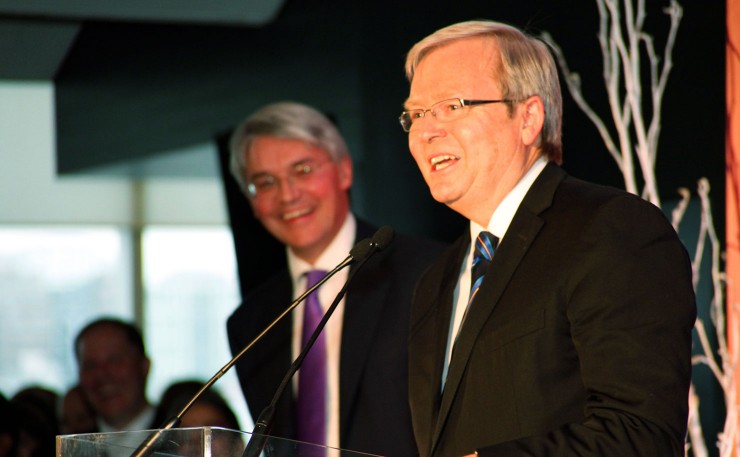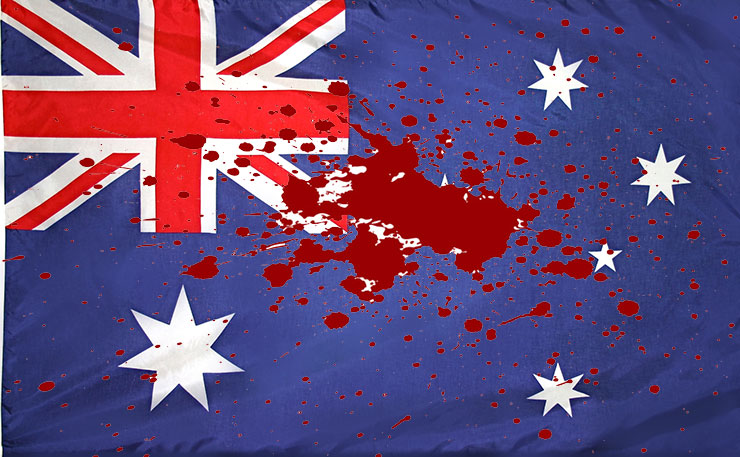To understand why Aboriginal and Torres Strait Islander people find Australia Day so offensive, you only need to ask yourself this one, simple question.
If your ancestors were dispossessed, slaughtered and had their land and their children stolen, would you celebrate the date on which that all began?
Obviously, you wouldn’t. It’s simply insane that anyone could expect Aboriginal people to embrace January 26 as the national day, given what it means to them.
The most common refrain against this is, ‘It’s time to move on’. Here’s the problem with that statement.
If you apply the same logic to non-Aboriginal Australia, then we should stop commemorating Anzac Day. ‘It’s time to move on. The wars were years ago.’
Obviously, we’d never treat our veterans with so much disrespect, living or dead. The simple truth is we shouldn’t treat Aboriginal people that way either. If we think it’s important to still mark the sacrifice of our ancestors for something that happened 100 years ago, why would we expect Aboriginal people to react any differently?
Another common refrain directed at Aboriginal people is: “I didn’t do it, it was previous generations.”
That’s probably true – if you’re a young Australian, aged 23 or under, then the laws which dispossessed Aboriginal people were not created by a government in your lifetime (the Mabo High Court decision, which found Aboriginal people owned the land prior to invasion, was handed down in 1992).
But here’s the problem: All Australians, regardless of their age, have directly benefitted from the dispossession of Aboriginal and Torres Strait Islander people. You enjoy the privileges of everything Australia has to offer directly at the expense of Aboriginal people. That’s something worth acknowledging.
And here’s another problem: the policies that flowed from the arrival of the British are still being enforced on Aboriginal people today – contrary to our claims, Aboriginal people do not have the same rights as non-Aboriginal people (Google ‘NT intervention’) in Australia – for example, child removal rates are higher today than at any point during the Stolen Generations era.
The debate among Aboriginal people to #changethedate is not a new one – it’s been raging, for a long, long time.
Perhaps the most important occasion in recent history occurred in 2009, after Kevin Rudd came to power.

In Opposition, Labor had promised Aboriginal people if it was elected it would change the date of Australia Day to one that is more inclusive. The promise was contained in the ALP’s 2007 National Platform, which guaranteed the implementation of the Roadmap For Reconciliation, a series of policies produced by the Council for Aboriginal Reconciliation in 2000.
Rudd won the election, but in the lead-up to Australia Day, the story broke of his promise. Rudd did what so many politicians before him have done – he lied, and then back-tracked.
After denying the promise was even made (startling, given it was freely available to download from the ALP website) – Rudd tried to quell the media storm with this one-liner: “To our Indigenous leaders, and those who call for a change to our national day, let me say a simple, respectful, but straightforward no.”
It was neither simple, nor respectful. It was a broken promise, but non-Aboriginal Australians were either uninterested, or quickly moved on. Every year since, the debate has still raged (and it raged for many, many years before as well).
Aboriginal Australia has been asking non-Aboriginal Australia to consider their feelings on this matter for generations. They’ve been largely ignored.
Unfortunately, there really is only one way forward if Australia wants a truly inclusive national date – #changethedate. Until we do, our national day will be marred by this conversation every year.
Tell your friends by sharing this story on social media.
The author of this article, Chris Graham, tweets here. You can follow New Matilda on Twitter here. You can follow New Matilda on Facebook here.
* New Matilda is involved with a new start-up craft brewery in Adelaide – the Sparkke Change Beverage Company. Sparkke this week launched a brand of Pilsner beer called ‘Change the date’. You can pre-order a carton here, for delivery before January 26, 2017.
• OTHER STORIES YOU MIGHT LIKE:
A Punter’s Guide To Not Getting Defensive About Adam Goodes Truth Bombs
Get Down With The Genocide; The Five Top Ways To Celebrate The Slaughter
John Pilger: Australia’s Day For Secrets, Flags And Cowards.
Donate To New Matilda
New Matilda is a small, independent media outlet. We survive through reader contributions, and never losing a lawsuit. If you got something from this article, giving something back helps us to continue speaking truth to power. Every little bit counts.






